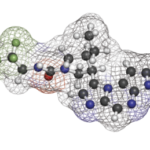Other recent safety and drug shortage updates included:
- Tocilizumab (Actemra): Based on clinical trial and post-marketing safety data, the FDA added a warning for hepatotoxicity to the tocilizumab prescribing information. Updated labeling recommends patients with RA and giant cell arteritis obtain a liver test panel before initiating the drug, every four to eight weeks for the first six months of treatment, and then every three months;
- Belimumab (Benlysta): The FDA expanded the existing warning and precaution for depression to include the risk of suicidality. The warning recommends physicians assess depression and suicide risks in patients before initiating therapy and monitor patients during treatment. Patients should contact their healthcare provider if they experience new or worsening depression, suicidal thoughts or other mood changes; and
- Intravenous immunoglobulin (IVIG) shortage: Currently, there is a shortage in the supply of IVIG and immunoglobulin subcutaneous products in the U.S. due to increased demand. “The agency is working closely with the applicants and manufacturers of IVIG to mitigate the supply shortage,” she said.
New FDA Initiatives: Pediatric Drug Development
Many challenges related to developing drugs for pediatric patients exist, said Nikolay Nikolov, MD, associate director for rheumatology, DPARP. The FDA’s work to ensure safe, effective drug development for pediatric patients is framed by two laws: the Best Pharmaceuticals for Children Act (BPCA) and the Pediatric Research Equity Act (PREA).
“The BPCA provides a financial incentive in the form of marketing exclusivity to pharmaceutical companies to voluntarily conduct pediatric studies by way of written requests. Sponsors who fairly meet the terms of the written request may be able to receive a six-month period of exclusivity for marketing,” said Dr. Nikolov.
“The PREA, on the other hand, gives the FDA the authority to require pharmaceutical companies to assess safety and effectiveness of certain products in pediatric patients, and this is when a drug is approved for an adult indication for which there is a pediatric equivalent or population,” he said. “The goal of both programs, one being the carrot and one being the stick, is to increase the number of approved therapies for pediatric patients.”
As a result, a number of highly effective therapies, including drugs to treat juvenile idiopathic arthritis (JIA), have been developed in recent years. Before 2008, studies used to provide evidence to approve JIA medications were randomized, double-blind, controlled trials. Recently, investigators have conducted randomized withdrawal trials that minimized pediatric patients’ exposures to placebo, but still provided the evidence needed to establish the efficacy and safety of new products.



